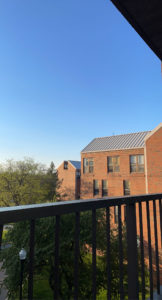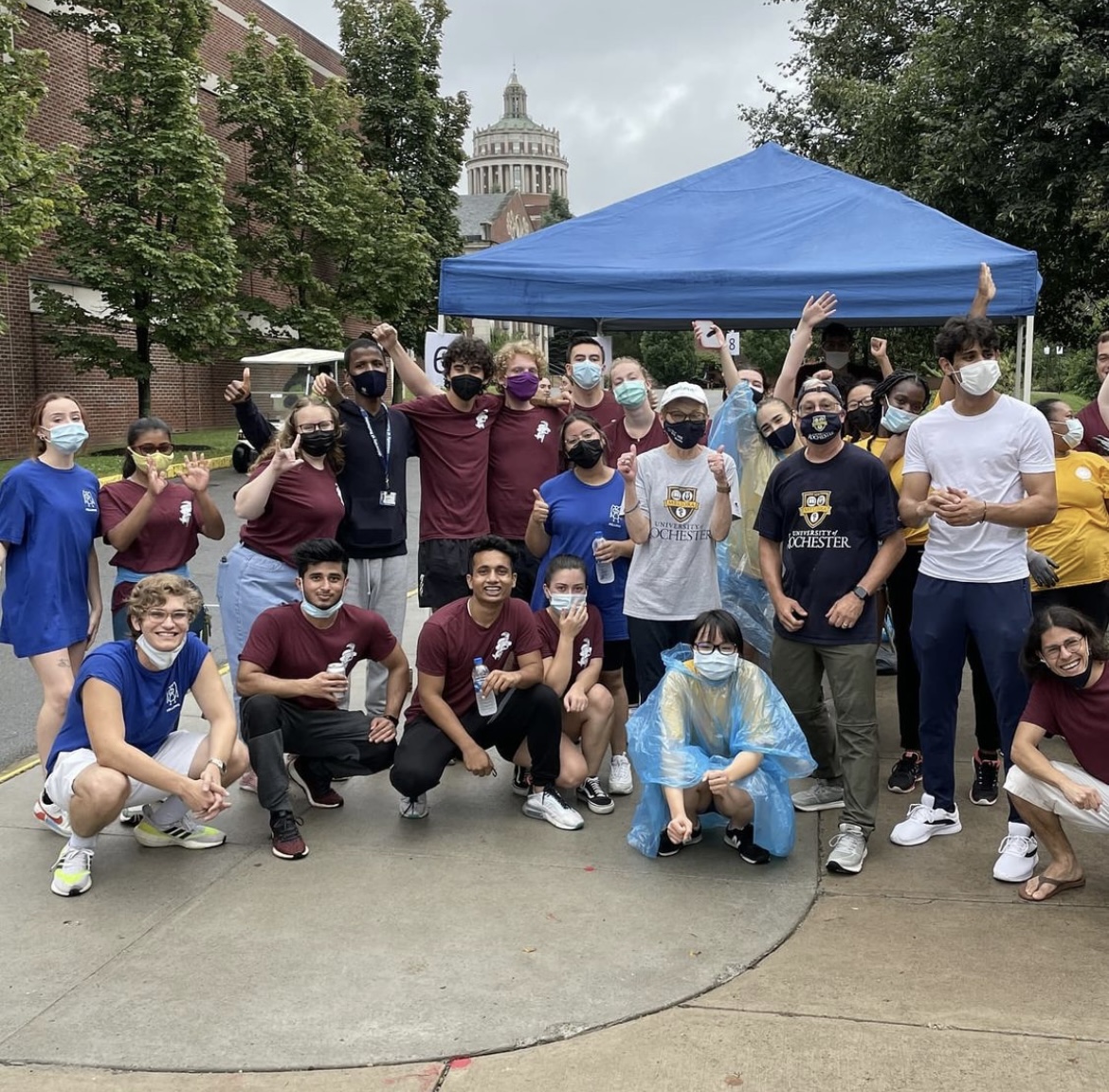Resident Assistant? Residential Advisor? No matter what you call it, your RA (actually referred to as a Resident Advisor) at the University of Rochester is someone to get to know. In short, the Office for Residential Life and Housing Services describes RAs as the people who “help build healthy and inclusive residential communities that complement and extend classroom learning.” They do this through living on your floor or in your building, being knowledgeable about the many resources on campus, planning intentional programs and events, and always being there to lend a helping hand. The RA role is paraprofessional, meaning they often build personal relationships with their residents that extend outside of what is required of their job. Whether your RA becomes your best friend or simply a support system you always know is there for you, here are a few things your RA wants you to know about residence hall life at the University of Rochester:
1. We know that living in a residence hall can be a tough adjustment
Going away to school is sometimes the first time you are living on your own, having a roommate, sharing a bathroom with someone, or even doing your own laundry! As RAs, we understand that on top of adjusting to the academic and social spheres of college life, adjusting to a new living space is unnatural and takes some time. What RAs most want you to recognize is two things: the peers around you can empathize with your adjustment, and your adjustment does not just need to be made on your own. Are you having trouble finding a quiet place to study? Ask your RA. Is the social scene of your hall and hanging out with new friends distracting you from maintaining a healthy sleep schedule? Talk to your RA. You will be surprised by just how much advice an RA can give you, and by the rare chance they do not know something off the top of their heads, they can point you in the right direction.

2. RAs are a lot of things, but at the end of the day we are a resource.
On the topic of pointing you in the right direction, it is a responsibility of RAs to know campus resources inside and out. As part of their training, RAs attend sessions to learn about the variety of campus resources, from the University Health Service to the Greene Center. Even during your upperclassmen years it can be difficult to fully grasp everything the U of R campus has to offer, and it is common and normal to feel lost on where to seek help. Whether you are a first-year or an upperclassmen student, relying on your RA to help offer suggestions on the most appropriate office to bring a concern to is a must. Additionally, RAs are often equipped with brochures, flyers, and folders of relevant resident concerns so they know exactly how to help you. Just know that in addition to being a friend or a mentor, your RA is your U of R encyclopedia located right down the hall.
3. We love to hear about what is going on with you— the good stuff too!
A major misconception is that your RA is only there to assist you when disaster strikes: when you do poorly on your first midterm, you have a disagreement with your roommate, or if you are feeling overwhelmed. Although your RAs are fully equipped to handle these types of situations and take pride in being able to support you, RAs love to hear about the good things too! Although you may think that saying nothing to your RA is your way of telling them “hey, I’m all good!” RAs enjoy organic check-ins, just so they know you are hanging in there. If you run into your RA on-campus or on your hall, do not be afraid to strike up a conversation and fill them in on anything major you have going on— they love to hear it and they will most likely serve as a greater voice of encouragement than you may anticipate. This is also a great way to build a relationship with your RA so when any sort of disaster is to strike, they will be even better suited to understand the support you need from them.

4. We are here to elevate your college experience, not make it harder.
Being straightforward, RAs do have to take disciplinary action to keep residents in accordance with university policies. However, another misconception here is that if an RA documents you for a violation they are “out to get you,” or “will never like you again.” To clear this up: RAs are students too, and their job in documenting any violations is rooted in looking out for your safety and helping you learn from mistakes. Even though disciplinary action is part of the job, no RA enjoys filing incident reports and making your life harder. Many RAs prefer to spend time with their residents interacting at hall programs or spreading school spirit throughout the building. All in all they want to improve your experience, so if you have an awkward run-in with your RA that involves disciplinary action, understand where they are coming from and communicate! They want to be on the best terms possible just as much as you do.
5. We have been in your shoes before.
It goes without saying that the rooms you are sleeping in, the halls you are walking down, and the lounges you are socializing in have all been occupied by RAs before you. Due to this, the reason the RA role exists is because there is no one else on this campus that understands the position of a student more than a student themself. This is why it is imperative to recognize that no matter what you run into, there has likely been someone who has experienced something similar before. When adjusting to college it can sometimes be challenging to find someone that empathizes with what you are going to and truly gets it, but RAs may surprise you in their ability to meet you right where you are at. Take a leap of faith and get to know your RA— a lot can come out of this connection that should not go to waste.
Overall, RAs want you to know that residence hall life is a large adjustment that you can be supported, advised, and uplifted through. RAs are a personified reminder that there is always someone on this campus in your corner, so take advantage of these residence hall superheroes and build those relationships. It will be worthwhile!

